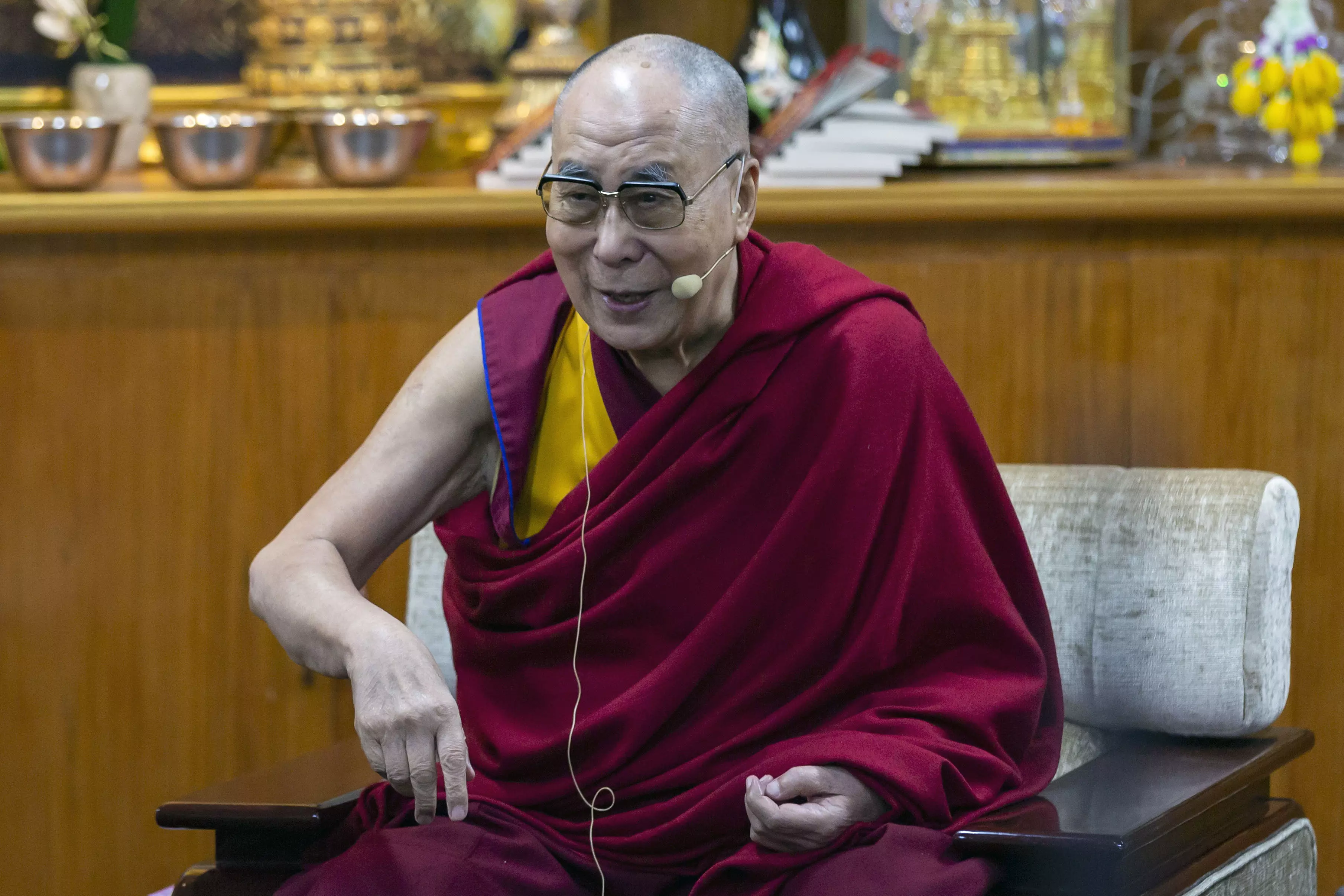DC Edit | US delegation’s Dalai meet is India’s message to China

The boot appears to be on the other foot now. China, accustomed to irritating the world with its fanciful territorial claims and its actions on the LAC with India and its aggressive posturing on Taiwan and the Pacific Ocean, is now getting a bit of a taste of its own medicine.
A bipartisan Congressional delegation of seven prominent US lawmakers visited Dharmshala in Himachal Pradesh to engage with the Dalai Lama and to assure him of American support for full autonomy for Tibet.
The presence of former Speaker of the US House of Representatives Nancy Pelosi, who once needled China by visiting Taiwan in 2022 when she was in office, and the Republican House Foreign Affairs Committee chairman Michael McCaul was meant to be a signal to China that its views on territory are not always taken as the last word and its sensitivities are not going to silence the world forever.
The US President is also to soon sign the Resolve Tibet Act after the bill, moved last month in the US House by Mr McCaul who also led the delegation to Dharamshala, received overwhelming bipartisan support. “The US strongly condemns all oppression and coercion of Tibetans," is what Mr McCaul said while piloting the bill.
Whether the signing of the bill into law succeeds in its aim to put the people of Tibet in charge of their own future by starting a dialogue with China on the status of their land or not, it is certain to rile China more as it challenges the view it has propagated for so long that Tibet has been part of China since ancient times.
India is not just a spectator to the US meeting with the Dalai Lama as it facilitated this interaction in a strategic ploy while showing the ability to stand up to China. How this will add to the tensions as the troops of both nations face each other from quarters too close for comfort is not known.
The message is clear that India will not take it lying down as China continues to play games in renaming places in India such as Arunachal Pradesh and objecting to visits there by the Prime Minister.
To tacitly support the concept of an autonomous Tibet is a counter card that India is obviously playing here even as the US rakes up the issue of Chinese moves that led to the Dalai Lama and a whole host of Tibetans seeking refuge in India since 1959.
The meeting of US lawmakers with the Dalai Lama on Indian soil will not change India’s declared position of recognising Tibet as a part of China after having treated it as a de facto independent country.
What India’s stand here tries to convey is that it would like Beijing to resolve tensions with Tibet and help protect the region’s native Buddhist culture, which had drawn a lot from the Buddhism as practised in India and which had fostered cultural and religious ties with Tibet.
With the talks to resolve the boundary issues that came up with the Galwan clashes of 2020 going nowhere after initial agreements saw some of India’s advantage being nullified, India may have decided to up the ante in the latest round of being the facilitator of the US lawmakers’ meeting with the Tibetan spiritual leader whom China dubs a separatist.

